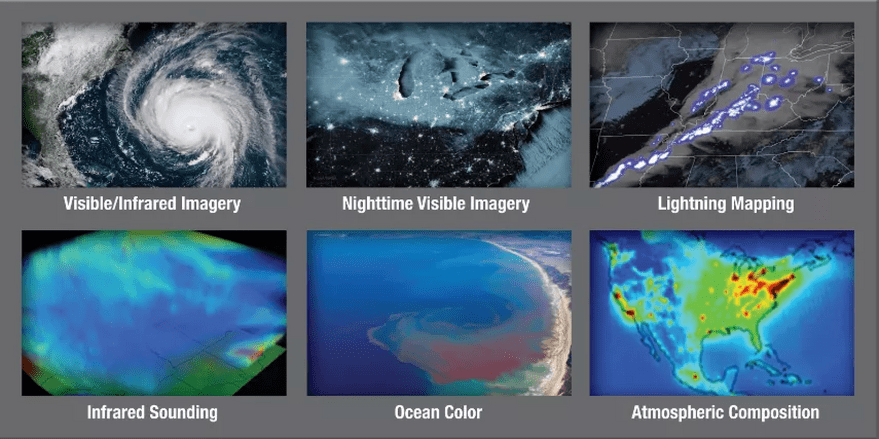SAN FRANCISCO – BAE Systems, the former Ball Aerospace and Technologies Corp., won a $365 million contract May 1 to develop an air quality sensor for a U.S. geostationary weather satellites.
The GeoXO Atmospheric Composition instrument, known as ACX, will monitor air quality and measure pollution from the National Oceanic and Atmospheric Administration’s next-generation Geostationary Extended Observations satellites.
ACX, a hyperspectral spectrometer, will measure ultraviolet to visible light. The instrument is designed to provide hourly observations of pollutants emitted by sources including power generation, transportation, oil and gas extraction, volcanoes and wildfires. Secondary pollutants generated in the atmosphere also will be tracked.
Timely Alerts
“GeoXO’s atmospheric composition observations, and forecasts that rely on those observations, will relay more accurate and timely air pollution alerts to the public,” Pam Sullivan, director of NOAA’s Office of Geostationary Earth Orbit Observations, told SpaceNews by email. “Americans who heed these alerts can avoid exposure to poor air quality, potentially lowering premature mortality and health care costs and increasing economic productivity.”
The cost-plus-award-fee contract covers development of a single flight instrument and options for additional sensors. BAE also will provide support for 10 years of on-orbit operations and five years of on-orbit storage for each air quality sensor.
“The ACX instrument will deliver robust, practical benefits for the science and operational user communities, as well as the public at large,” Alberto Conti, BAE Systems Space & Mission Systems vice president and general manager of civil space, said in a statement. “Not only will this instrument provide cutting-edge measurements of air quality, but it will also improve weather forecasts, help pilots avoid dangerous situations, warn hospitals of imminent air quality issues and protect the lasting health and economic stability of our communities.”
In addition to providing operational monitoring, the ACX instrument will support research on emissions and the movement of aerosol particles including nitrogen dioxide, formaldehyde, glyoxal, sulfur dioxide and ozone.
The GeoXO Program is the follow-on to the Geostationary Operational Environmental Satellites – R Series program.
NOAA and NASA will work together to oversee development, launch, testing and operation of the GeoXO satellites. NOAA funds and manages the program, operations and data products.
NASA will work with commercial partners developing and building GeoXO instruments and spacecraft. NASA is also responsible for launching the satellites.
“By providing continuous observations and measurements of atmospheric composition, ACX data will improve air quality forecasting and monitoring and mitigate health impacts from severe pollution and smoke events, such as asthma, cardiovascular disease and neurological disorders. ACX data will also help scientists better understand linkages between weather, air quality and climate,” according to the news release.
Work to the contract will be conducted at BAE Systems’ facility in Boulder, Colorado, NASA’s Goddard Space Flight Center in Greenbelt, Maryland, and NASA’s Kennedy Space Center in Florida.
